
OR
News Analysis
Intra-party rift within ruling NCP is already at its climax. What may happen next?
Published On: December 16, 2020 07:09 AM NPT By: Kosh Raj Koirala | @KoshRKoirala
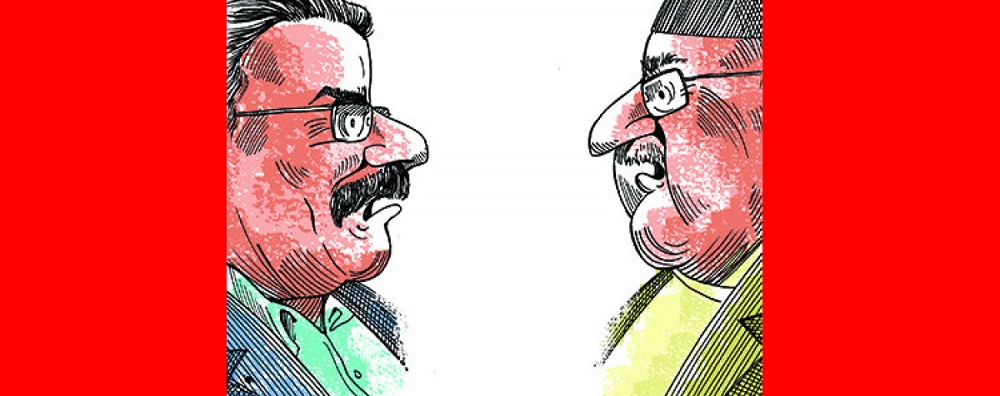
KATHMANDU, Dec 15: The ongoing row within the ruling Nepal Communist Party (NCP) reached its climax on Tuesday with House Speaker Agni Prasad Sapkota deciding not to attend the Constitutional Council meeting that was expected to make crucial nominations at various constitutional bodies. It was not difficult for Prime Minister KP Oli, who chairs the CC, to understand that Sapkota — a confidante of the party’s Executive Chairman Pushpa Kamal Dahal and the rival faction leader in the party — had chosen to abstain from the meeting at the instruction of Dahal. The CC meeting was put off until further notice as the absence of the Speaker left the meeting short of the required quorum.
But what followed within an hour or so was the cabinet meeting and subsequent decision to issue an ordinance to pave the way for the prime minister to hold a meeting even if only three CC members are present — against the existing provision of five -- of the six-member CC body. The CC meeting convened later again at 5 pm and held discussions to nominate candidates to a number of vacant positions at various constitutional bodies despite serious reservation from the rival faction leaders within the ruling party. Speaker Sapkota and the main opposition party, Nepali Congress (NC), President Sher Bahadur Deuba did not attend the meeting.
This particular event on Tuesday is enough to show that the deepening intraparty rift within the NCP in recent months has already reached its climax. And, nobody including those within the ruling NCP, have any clue what move Prime Minister Oli may take next and how the rival faction that includes senior leader Madhav Kumar Nepal, Jhala Nath Khanal and Bam Dev Gautam will respond to any move taken by the prime minister.
Second-rung leaders within the ruling NCP say the two factions within the party have already reached the stage of showing their strength at their disposal to weaken their opponents and even form a new party in the worst-case scenario. In fact, both sides have already started weighing their strength at the district-level and a message has been already communicated to their leaders across districts to stand ready for any kind of eventualities in the next few days.
The reason behind the rift
Rival faction leaders have long been alleging that Prime Minister Oli took unilateral decisions on a number of important matters concerning governance and the party’s affairs. But as Prime Minister Oli allegedly did not “mend” his ways despite their “repeated requests', the rival faction has mounted pressure on Oli to resign from the post of either prime minister or the party’s chairman for any consensus.
Dismissing allegations that he had run the party unilaterally, Oli has instead accused the rival faction of making the government difficult to carry out day-to-day works of the government and deliver results. In response to their demands to step down from one of the two positions, Oli has insisted that he will hold the post of the party’s chairman until the unity general convention of the NCP is held and the post of prime minister until a fresh parliamentary election is held. Oli has even proposed holding the party’s general convention before mid-April next year.
However, the rival faction led by Dahal appears not convinced with Oli’s proposal. They have maintained that the resignation of Oli from one of the two key positions is their bottom line for consensus — something Oli has rejected outright. The Oli faction believes that this is a strategy of the rival faction to eventually oust Oli from both the positions of the prime minister and the party’s chairman.
What is the rival faction planning?
Rival faction leaders have held meetings at the residence of Executive Chairman Dahal in Khumaltar to forge their strategies as Prime Minister Oli has shown no sign of giving in to their demands. Should there be no consensus between the two factions (Many within the party say chances of consensus are now almost zero following the latest move to introduce an ordinance), the Dahal-led rival faction plans to take decisions through the party’s Standing Committee or the Central Committee to relieve Oli from both posts of the prime minister and the party’s chairman.
But since their decision to relieve the prime minister through the decisions made by the party’s committee will not be constitutional, the rival faction leaders, according to sources, have also made internal preparations to register a vote of a no-confidence motion in parliament once the House session is summoned. As per the constitutional arrangement to summon a new House session within six months of the previous house session, the government must summon a House session by January 1, 2020.
What could be the possible moves of Prime Minister Oli?
Sources close to Prime Minister Oli say the prime minister is not ready to give in to the demands put forth by the rival faction even as he has been cornered in the party in recent months. The prime minister is most likely to introduce a fresh ordinance related to the division of political parties and announce the end of the unification of the erstwhile CPN-UML and CPN (Maoist Center). The prime minister-led faction has already made necessary preparation to revive the CPN-UML as a group close to Oli has already registered the party with the Election Commission.
Although a few lawmakers have pledged support to both sides, NCP insiders say Prime Minister Oli and Dahal-led rival faction command the support of an almost equal number of lawmakers in parliament. The NCP has 174 of the total 275 lawmakers in the House of Representatives. If there is no consensus between the two sides, the prime minister may seek the option of either forming a new party and negotiate with the Nepali Congress or Samajbadi Party to form a new government or dissolve parliament and announce midterm elections. NCP insiders say the prime minister has held several rounds of meetings already in the past with constitutional experts about the possibility of dissolving parliament and announcing midterm elections.
Standing Committee meeting is crucial
The NCP has called the party’s Standing Committee meeting for Wednesday. What decision the Standing Committee meeting takes will be important whether the party unity will be saved and the impending political, as well as the constitutional crisis in the country, will be averted.
Like in the Secretariat body, the Standing Committee members of the party are divided on the basis of their factions. But there is also a section of Standing Committee members who are not ready to support their leaders at the cost of the party's split. The prime minister may not seek any other alternative decisions if the Standing Committee does not endorse the proposal of the Dahal faction to force Oli to step down from the post of both prime minister and party chairman.
In terms of numerical strength, the rival faction is stronger in all party's committees now. “Any such decision on the part of the Standing Committee may give some more time to both factions to seek consensus and save the party unity, at least for now,” a senior NCP leader told Republica. “If that does not happen, the dispute will then further reach the party’s Central Committee. It is hard to save the party unity in that case.”
You May Like This
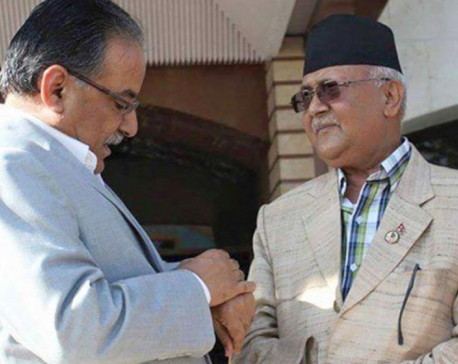
Chairman Dahal demands a Secretariat meeting to resolve disputes seen within the party
KATHMANDU, Oct 31: Amid growing rift between the top leaders within the party over some of the decisions taken by... Read More...
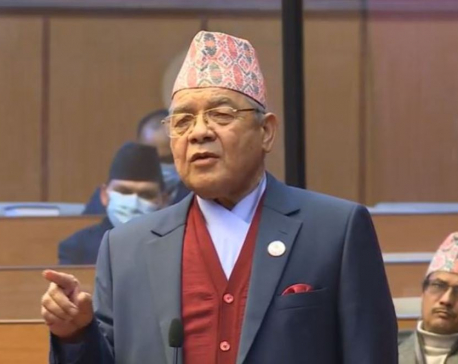
NCP Vice-chair Gautam steps up efforts to keep party unity intact after SC decision to overturn PM’s House dissolution move
KATHMANDU, Feb 26: A section of leaders within the ruling Nepal Communist Party (NCP) has intensified their meetings with the... Read More...
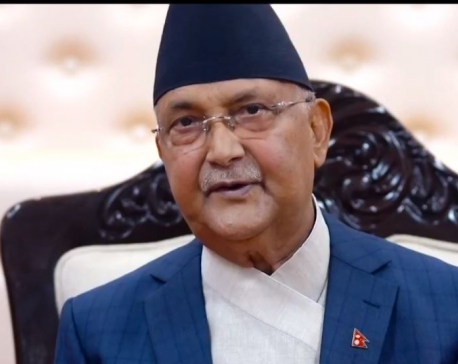
PM Oli to visit Kimathanka on Wednesday as Dahal calls NCP Secretariat meeting without his consent
KATHMANDU, Nov 10: Prime Minister KP Oli is visiting the Kimathanka area on Wednesday even as his party’s Executive Chairman... Read More...




Just In
- UML's National Convention Representatives Council meeting today
- Gandaki Province CM assigns ministerial portfolios to Hari Bahadur Chuman and Deepak Manange
- 352 climbers obtain permits to ascend Mount Everest this season
- 16 candidates shortlisted for CEO position at Nepal Tourism Board
- WB to take financial management lead for proposed Upper Arun Project
- Power supply to be affected in parts of Kathmandu Valley today as NEA expedites repair works
- Godepani welcomes over 31,000 foreign tourists in a year
- Private sector leads hydropower generation over government







_20220508065243.jpg)





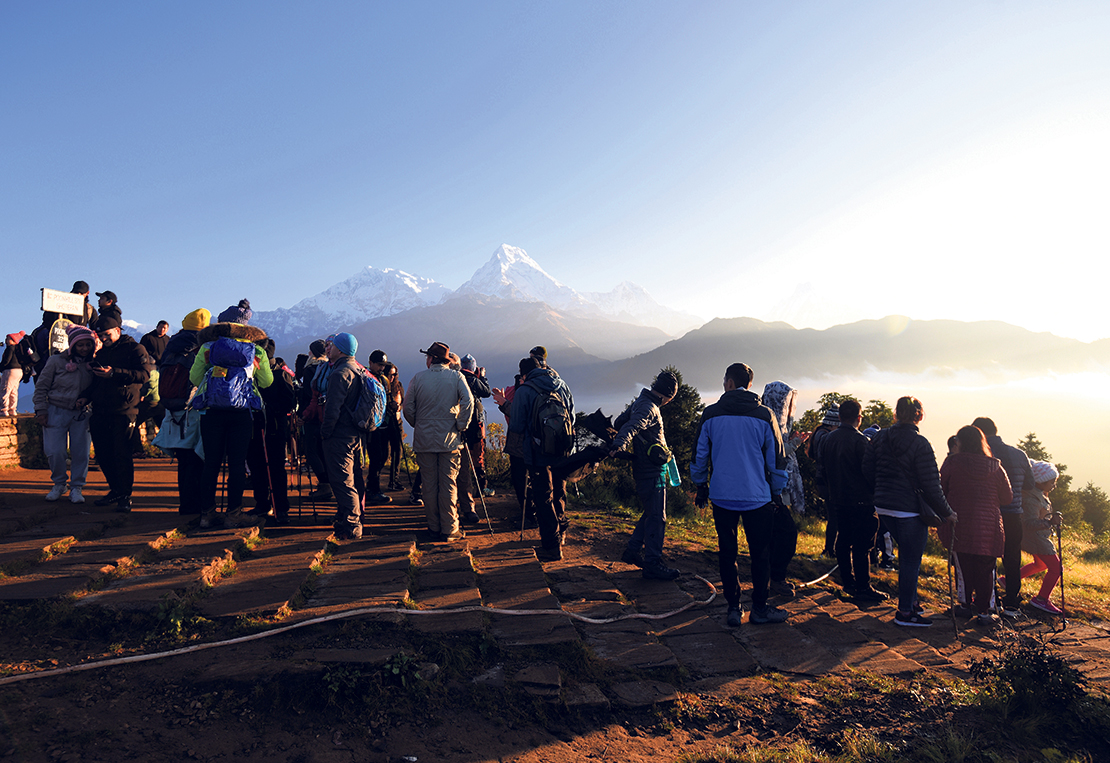

Leave A Comment